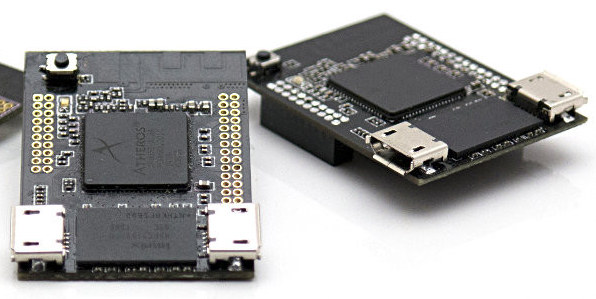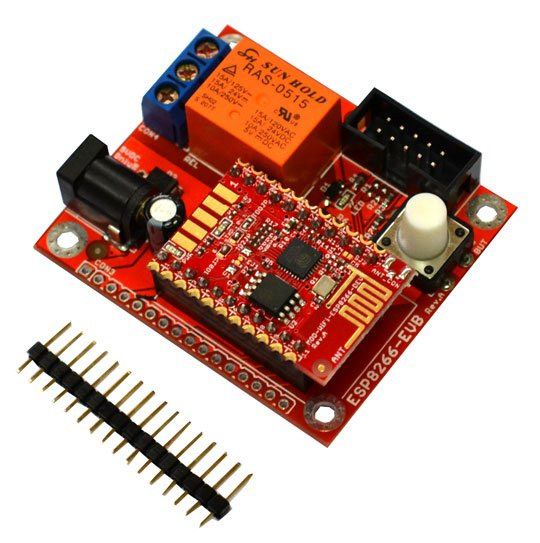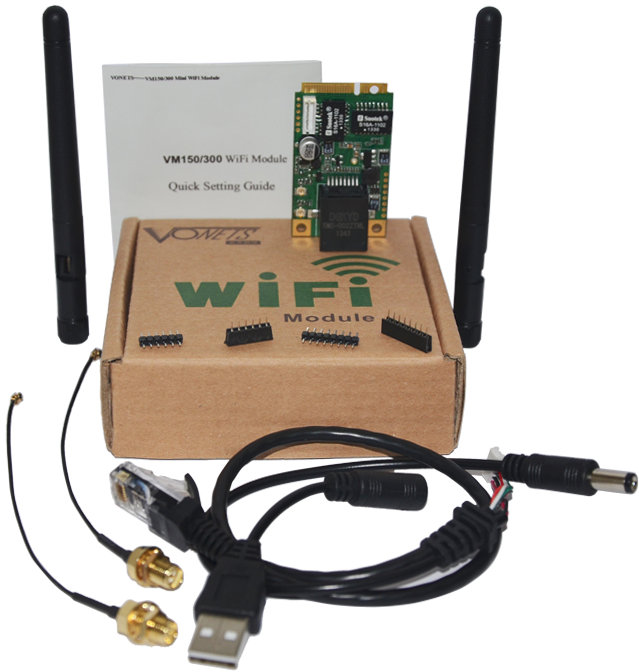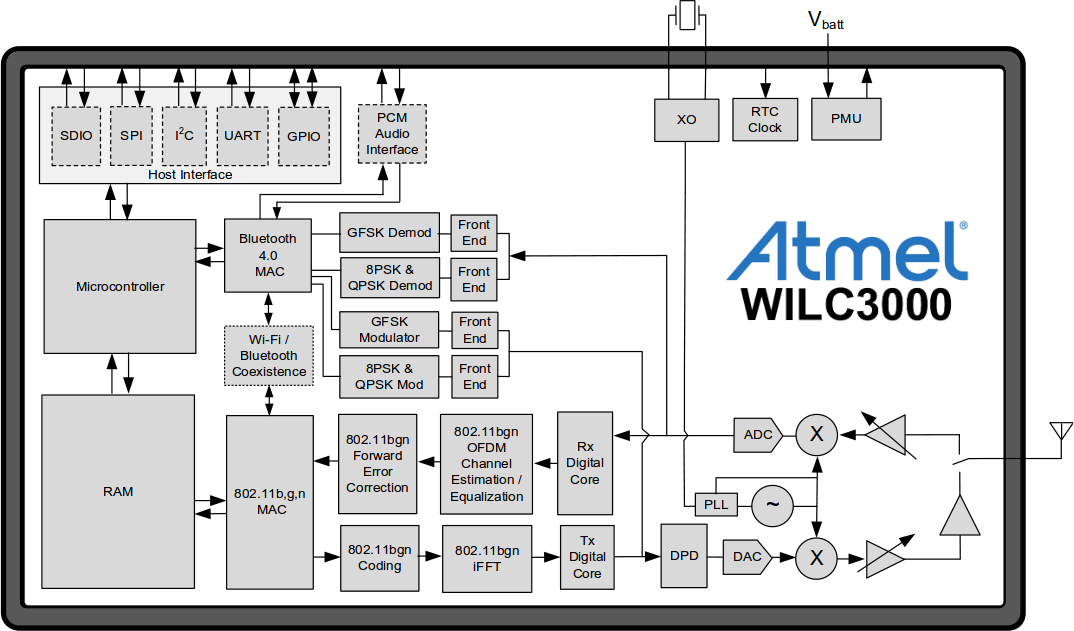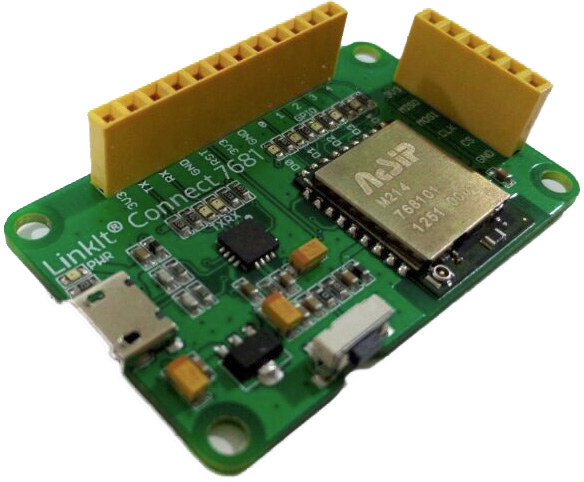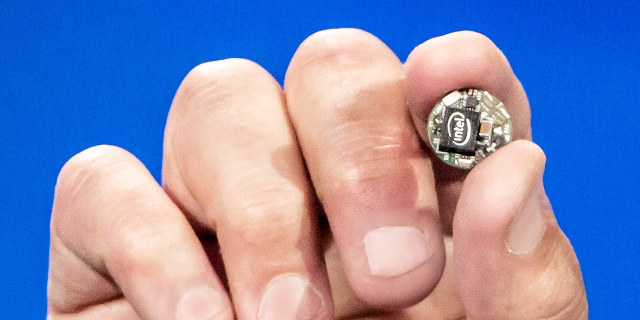FOSDEM (Free and Open Source Software Developers’ European Meeting) takes place every year during the first week-end of February. This year the developer-oriented event expects to bring over 5000 geeks to share ideas and collaborate on open source projects. Contrary to most other events, it’s free to attend, and you don’t even need to register, just show up. FOSDEM 2015 will take place on January 31- February 1 in Brussels. There will be 551 sessions divided into 5 keynotes, 40 lightning talks, 6 certification exams, and with the bulk being developer rooms and main tracks, divided into 7 main tracks this year: Languages, Performance, Time, Typesetting, Hardware, Security and Miscellaneous. I’m not going to attend, but it’s still interested to see what will be talked about, and I’ve concocted my own little virtual program out of the main tracks and developers’ rooms. There’s a few minutes overlap between some talks […]
Black Swift is a Tiny OpenWRT Wi-Fi Board Powered by Atheros AR9331 (Crowdfunding)
In case you thought there were not enough Wi-Fi board in the market already, here’s another one with Black Swift. The board runs OpenWRT, is a little larger than Vocore, and quite smaller than WRTnode, is powered by Atheros AR9331, provides access to I/Os via headers, and comes with two micro USB ports which should make it easy to use, and allow some interesting applications with USB devices. Black Swift specifications: SoC – Qualcomm Atheros AR9331 32-bit MIPS 24K CPU core @ 400 MHz, or 200 MHz in energy-saving mode selectable by software System Memory – 64 MB DDR2 SDRAM Storage – 16 MB NOR flash Connectivity – 802.11 b/g/n Wi-Fi (1×1, up to 150 Mbps) with PCB antenna USB – 1 x microUSB for power, 1x microUSB 2.0 port Expansion – Headers for 26x GPIO, 2x Fast Ethernet, SPI, I²C, 1x 16550 UART, 1x USB 2.0 Misc – Factory reset […]
Olimex ESP8266-EVB Wi-Fi Evaluation Board Includes a Relay, an UEXT Connector
Olimex announced open source hardware ESP8266 modules last month, and the company has just announced the availability of ESP8266-EVB board with an ESP8266 module, a relay, an UEXT connector for other compatible Olimex modules, and headers for access to GPIOs. ESP8266 evaluation board specifications: MOD-WIFI-ESP8266-DEV Wi-Fi module with soldered connectors Female connectors for MOD-WIFI-ESP8266-DEV 10A/250VAC Relay Expansions 16-pin header (CON3) with access to some GPIOs, ADC, SDIO, RESET, and power signals. UEXT connector to connect modules and sensors from Olimex, or access I2C, UART, SPI, and extra GPIOs Misc – User Button which can also be pressed at boot time to enter bootloader mode for firmware upgrade. Power Supply – 5V/1A recommended; DCDC power converter to 3.3V to supply ESP8266 and UEXT modules with up to 1.5A current Dimensions – 57x50mm (4 mounting holes) You’ll also need 5V power supply, and a USB to serial board (3.3V) in order to […]
Vonets VM300 Wi-Fi & Ethernet IoT Board with Mediatek MT7620 Runs OpenWRT
Mediatek MT760 is a recent Wi-Fi SoC found in some Nexx WT3020 routers, and WRTnode development board. Both run OpenWRT and costs $17 to $30 depending on the amount of flash, and ports with the former featuring two Ethernet ports, and the latter access to GPIOs. You could probably open the case of the Nexx routers and solder some wires to get access to GPIO, and you can hack an Ethernet cable for WRTnode, but another options could be Vonets WM300 kit that includes a board with Wi-Fi and Ethernet, a cable for USB / Ethernet connection, headers for GPIOs, and two external antennas for less than $30. An OpenWRT SDK is also provided for the kit. Specifications listed for VM300 board: Processor – Mediatek MT7260N MIPS processor @ 580MHz Storage – 4MB SPI Flash (option: 8MB/16MB) for firmware System Memory – 32MB or 64MB SDRAM Connectivity Wi-Fi Single band […]
Atmel Introduces Wi-Fi / Bluetooth Combo SoCs for the Internet of Things
Atmel has recently announced two SoCs supporting Wi-Fi and Bluetooth 4.0 that target M2M and IoT applications, namely WILC3000 wireless link controller and WINC3400 network controller which both integrate a power amplifier, LNA, switch and power management unit. WILC3000 and WINC3400 should share the following specifications: MCU – Cortus APS3 32-bit processor ROM/Flash – 256KB instruction/boot ROM (160KB for 802.11 and 96KB for Bluetooth) along with a 768 bits of non-volatile eFuse memory RAM – 420KB instruction RAM (128KB for 802.11 and 292KB for Bluetooth), and a 128KB data RAM (64KB for 802.11 and 64KB for Bluetooth), as well as 160KB shared/exchange RAM (128KB for 802.11 and 32 KB for Bluetooth) Wi-Fi IEEE 802.11 b/g/n RF/PHY/MAC SOC (2.4 GHz) IEEE 802.11 b/g/n (1×1) for up to 72 Mbps Wi-Fi Direct and Soft-AP support Supports IEEE 802.11 WEP, WPA, WPA2 Security, China WAPI security Bluetooth Version 4.0 Low Energy Class 1 […]
Snappy Ubuntu Core is an IoT Linux Distribution for ARM and x86
Canonical has announced a version of Ubuntu specifically designed for IoT devices running Linux, with a low hardware requirements, and a new package manager called snappy, replacing apt-get for this version of Ubuntu, which provides simpler, faster, and more reliable updates, stronger security, and allows roll-backs in case something goes wrong. Easy firmware updates are something missing in most connected device, which means they are more vulnerable to potential hackers, but with snappy security updates should be able to make it regularly, so that if something like heartbleed occurs again, you know your router, home automation gateway, connected washing machine, or robot will be soon patched automatically. Let’s go through the hardware requirements first: Processor – 600 MHz processor (ARMv7 or greater, or x86) System Memory – 128 MB RAM or greater (The system itself uses 40 MB RAM) Storage – 4GB flash / storage for factory reset and system […]
LinkIt Connect 7681 is a Wi-Fi IoT Board Powered by Mediatek MT7681
So it looks like Mediatek has decided to carry on with its Mediatek Labs endeavours, as after launching LinkIt ONE last year, they’re about to introduce LinkIT Connect 7681, a development board with a Mediatek MT7681 based Wi-Fi module, and access to various GPIOs. LinkIt Connect 7681 HDK (Hardware Development Kit) specifications: SoC – Mediatek MT7681 Andes N9 processor @ 80 MHz with 64KB RAM, Storage – 1MB SPI Flash for firmware Connectivity – Wi-Fi: 802.11 b/g/n for Station mode; 802.11 b/g for AP mode via a MT7681 module by AcSIP Headers – 12-pin header for UART, 5 GPIOs (also usable as software PWM), RESET, and 3.3V/5V/GND; 6-pin header for SPI, 3.3V and GND. USB – 1x micro USB for power and programming/debugging Misc – Reset push-button, 2x UART LEDs Power Supply – On-board 1A 3.3V voltage regulator (can be powered from USB connector) I/O Voltage – 3.3V for GPIO […]
Intel Curie Board Designed for Wearables is Powered by Quark SE SoC
Intel announced the Edison board at CES 2014, a board targetting wearables and IoT applications about the size of an SD card. At CES 2015, the company has gone smaller, by unveiling the button-sized Intel Curie module powered by a new Intel Quark SE SoC with a motion sensor, Bluetooth Low Energy connectivity and battery charging capabilities. Intel Curie specifications: Low-power, 32-bit Intel Quark SE SoC 384kB Flash memory, 80kB SRAM Low-power integrated DSP sensor hub with a proprietary pattern matching accelerator Bluetooth Low Energy 6-axis combo sensor with accelerometer and gyroscope Battery charging circuitry (PMIC) The module runs an unnamed open source RTOS, and the company will provide IQ software kits for references applications for wearables, such as counting steps, apps for mobile device, and so on. Intel Curie is expected to be found in smart products such as rings, bags, bracelets, pendants, fitness trackers and buttons. There’s basically no […]



